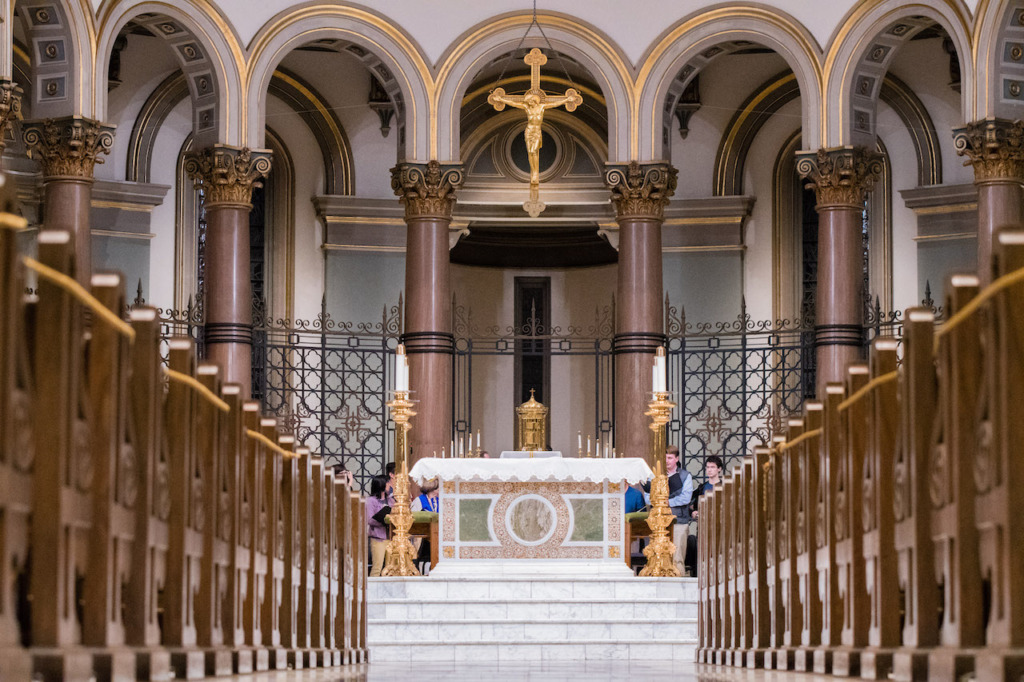A recent internal memo issued, and sub- sequently retracted, by the FBI labeled “radical traditionalist Catholics” as “potential terrorists.”
Since the memo’s release, 20 state attorneys general have objected to the memo’s premise that Catholics are an extremist threat. “Anti-Catholic bigotry appears to be festering in the FBI, and the bureau is treating Catholics as potential terrorists because of their beliefs,” the AGs wrote to FBI Director Christopher Wray and U.S. Attorney General Merrick Garland.
Bishop Barry C. Knestout denounced the memo. In a statement released Feb. 13, he said, “The leaked document should be troubling and offensive to all communities of faith, as well as all Americans.”
Condemning the memo as “a threat to religious liberty,” Bishop Knestout argued that “Racism, religious bigotry, violence, and dis- crimination have no place in our Church.”
At stake is the integrity of Catholic teaching, our right to live out our faith in peace and our reputation among our fellow citizens.
Bishop Knestout was “grateful” for the letter of the 20 state attorneys general “who have called upon the government to publicly release all materials related to the production of this memo.” The bishop continued, “A preference for traditional forms of worship and holding closely to the Church’s teachings on marriage, family, human sexuality and the dignity of the human person does not equate with extremism.”
And here we are, facing a real difficulty. Our religious faith does not now, nor has it ever, conformed to secular cultural values and norms. We will continue to be at odds with a world that does not recognize Our Lord.
Today, that confrontation between what we believe and our society is principally concerned with the value and fundamental dignity of every human life and human sexuality. In ages past, Christians gladly embraced death rather than offer sacrifice to pagan idols.
But the greatest contest for believers is not between the world at large and the Christian faith. The greatest conflict is fought in our own tortuous hearts.
There’s a scene in “The Lion, the Witch, and the Wardrobe” (the first novel in C.S.Lewis’ “Chronicles of Narnia”) that I often think of concerning this battle for our hearts. Lucy and her sister, Susan, English schoolgirls who have been transported to Narnia, have heard that
Narnia’s king is a lion.
“Is he – quite safe?” asks Susan. “I shall feel rather nervous about meeting a lion,” she says. Lucy echoes her sister’s question.
“Safe? … Who said anything about safe? Course he isn’t safe. But he’s good. He’s the King I tell you,” replies Mr. Beaver.
To the wicked, to those who harm his children and oppose his reign, Aslan is a force to be reckoned with. His power is terrible and great because he is good. He is forgiving and compassionate but not “safe” or “tame.”
Christianity is not dangerous because it harms people – quite the opposite, actually. In Christ, all are changed and freed. That work of liberation can be a messy affair, which is why, no doubt, some balk at it. The process of conversion is constant, even violent. But in Christ we become more fully who we were made to be.
We have to take seriously unjust aggressions like the recent FBI memo. We should fight to overturn them. But they shouldn’t surprise us. This memo is just one more line in the history of a world that neither now nor then knows the God who loves it. The one thing we do know is that we must cling to the Lord. He alone is good.
Father Patrick Briscoe, OP, is editor of Our Sunday Visitor. Follow him on Twitter @Patrick- MaryOP.

